English
Islamophobia in Switzerland

Review on Feim’s book “Islamophobia in Switzerland”
PREFACE
For centuries, ideas of race have been used to divide people. Usually constructed as the good and the bad, the superior and inferior, the intelligent and stupid. Processes of racialisation have also marked Muslims, identifying some as ‘good’ and others as ‘bad’ through binary, Islamophobic discourses found in government policy, the media and on our streets.
Jawaab’s work throughout the years has been important because Islamophobia lends itself to violence, marginalisation, exploitation and feelings of powerlessness. It impacts people and communities.
It impacts us all as our civil liberties are stripped down in the name of security, our working conditions worsen as Muslims struggle to find employment, and our streets become less safe because of Islamophobia and racial violence.
A decade ago, a group of young Muslims came together with religious leaders from the UK and Germany. We came to host the 12 cities network, made up of civil rights campaigners and young activists from 5 cities, London, St Gallen, Dortmund, Paris and Tbilisi. We convened a three-day conference bringing a range of people together. To share their challenges in their respective regions, how they have organised against racism, and how we could collectively build power to fight the scourge of racism. In 2013, our situation in the UK was that we were well over a decade into the fight against the so-called ‘war on terror’. There was a lot of discussion about security but it almost always focussed on Muslims.
This discourse went something like this: we need protection from Islamist terrorism. We need to monitor Muslim men who are supposedly vulnerable to Islamist extremism. We need Muslim women, especially mothers to keep an eye on their sons. Just in case. No doubt that countering all forms of extremism should be a government priority, it is their job to keep all of us safe.
However, this dangerous discourse helped to shape a highly charged, Islamophobic atmosphere, where Muslims were and still are being vilified, attacked, and even killed. Take Makram Ali, a 51-year-old man who was murdered by a white terrorist who ploughed his van into worshippers outside Finsbury Park Mosque in Ramadan 2017. Or the case of Muhsin Ahmad, an 81-year-old grandfather kicked to death by two white men, as he walked to prayers at a mosque in Rotherham in August 2016. Similarly, Mohammed Saleem, an 82-year-old man, was stabbed to death by a neo-Nazi as he walked home from the mosque in 2013.
I wish I could say things have changed since the last ten years of our gathering. Unfortunately not.
In March 2023 we heard about a man who has been charged with two counts of attempted murder, accused of setting two Muslim men on fire outside mosques in Birmingham and London.
The list is endless, documenting the way Muslim lives are shaped, and sometimes brought to an untimely end by the horrors of Islamophobia.
When we got together in Dortmund, we wanted to build our power of fighting Islamophobia. We wanted the participants to feel empowered enough to work through their experiences of Islamophobia in our safe spaces. We wanted Muslims to feel confident enough to use the skills they learned to challenge Islamophobia wherever they see it manifesting. By being in the space with leaders we want Muslims to be able to raise their voices as equals in society.
And today, ten years on, Feim Dragusha (a participant from the St Gallen delegation) is set to publish this journal in three different languages.
Although our experiences of Islamophobia, at that time shared similarities there were also differences. The one thing that united us was our conviction to carry on fighting for justice. And this paper is a testament to that.
Today we continue to fight for our Muslim identity and aspiration to be built on the foundations of equality, fairness and dignity.
Salaam and solidarity 3rd June 2023
Written by: Mr. Rizwan HUSSAIN
Founder and director of Jawaab

English
DR. ABU EL-BASHAR ALI ADAM
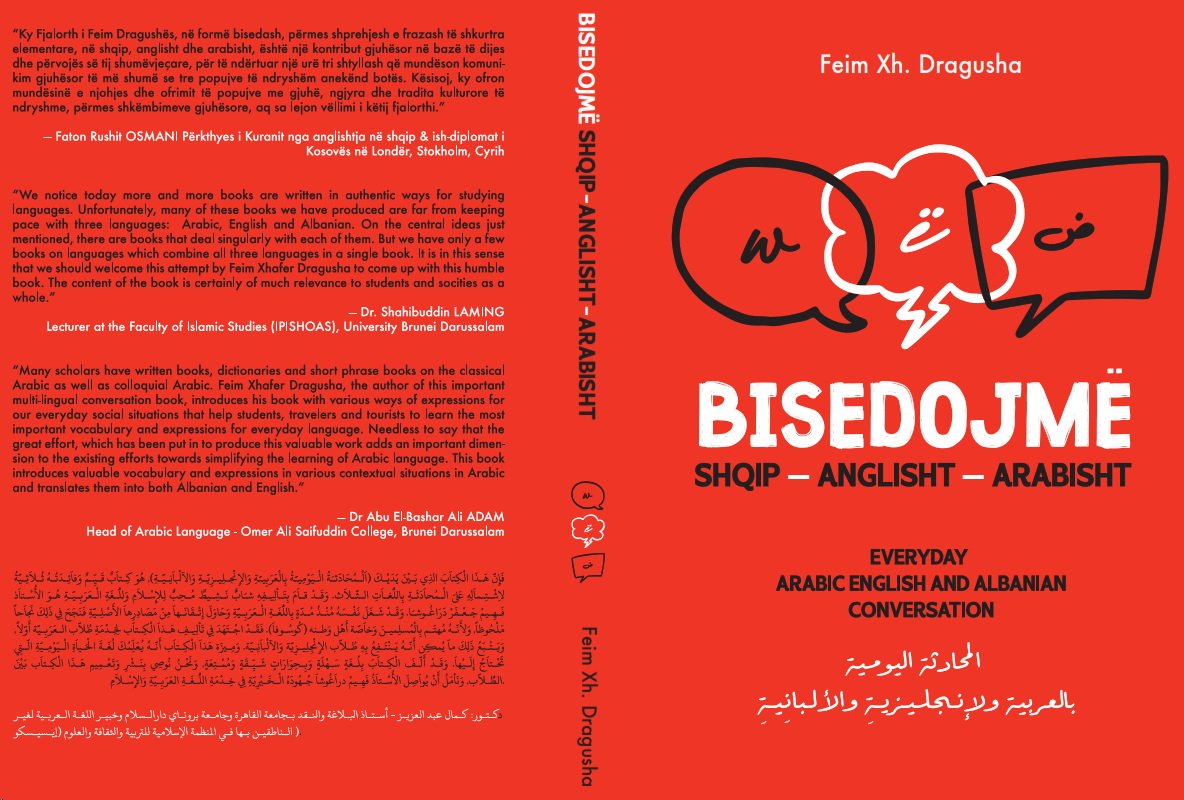
INTRODUCTION
In the Name of Allah the Beneficent the Merciful
Praise be to Allah, Prayers and greetings to the best of Prophets and Messengers, Our Prophet Muhammad and all his family Members and Companions.
Arabic language is the language of the Holy Qur’an and the vehicle of great Islamic heritage and culture. It’s learning facilitates communication among nations. In this context, vocabulary plays the role of basic tool for expressing our thought. Therefore, mastering it in suitable contexts helps controll our thoughts and expressions. It is an important part in the process of com-position writing.
Many scholars have written books, dictionaries and short phrase books on the classical Arabic as well as colloquial Arabic.
Feim Xhafer Dragusha, the author of this important multilingual conversation book, introduces his book with various ways of expressions for our everyday social situations that help students, travelers and tourists to learn the most important vocabulary and expressions for everyday language.
Needless to say that the great effort which has been put in to produce this valuable work adds an important dimension to the existing efforts towards simplifying the learning of Arabic language. This book introduces valuable vocabulary and expressions in various contextual situations in Arabic and translates them into both Albanian and English.
This attempt could be considered a great determination from the author, especially when we come to know that he is still in his early stages of learning the Arabic language, which indicates his love for the language of the Holy Qur’an.
The book contains, among others, topics on personal pronouns, question articles, forms of greeting, going to the mosque, the barber, hospital, traveling, post office services, hotel booking, restaurants, days of the week, months, playing, clothes, visiting friends, sleeping, airport, and fruit and vegetables.
The understanding of the context of these topics will help learners of the Arabic language to master some aspects of conversation and vocabulary in suitable contexts.
We wish him guidance from Allah for works in the future for the service of Islam and Muslims.
![]() DR. ABU EL-BASHAR ALI ADAM
DR. ABU EL-BASHAR ALI ADAM
Head of Arabic Language – Omer Ali Saifuddin College
Brunei Darussalam
2006
English
MUSLIMS SHOULD BE INVOLVED AND ACTIVE IN THE AFFAIRS OF THE COUNTRY WHERE THEY LIVE
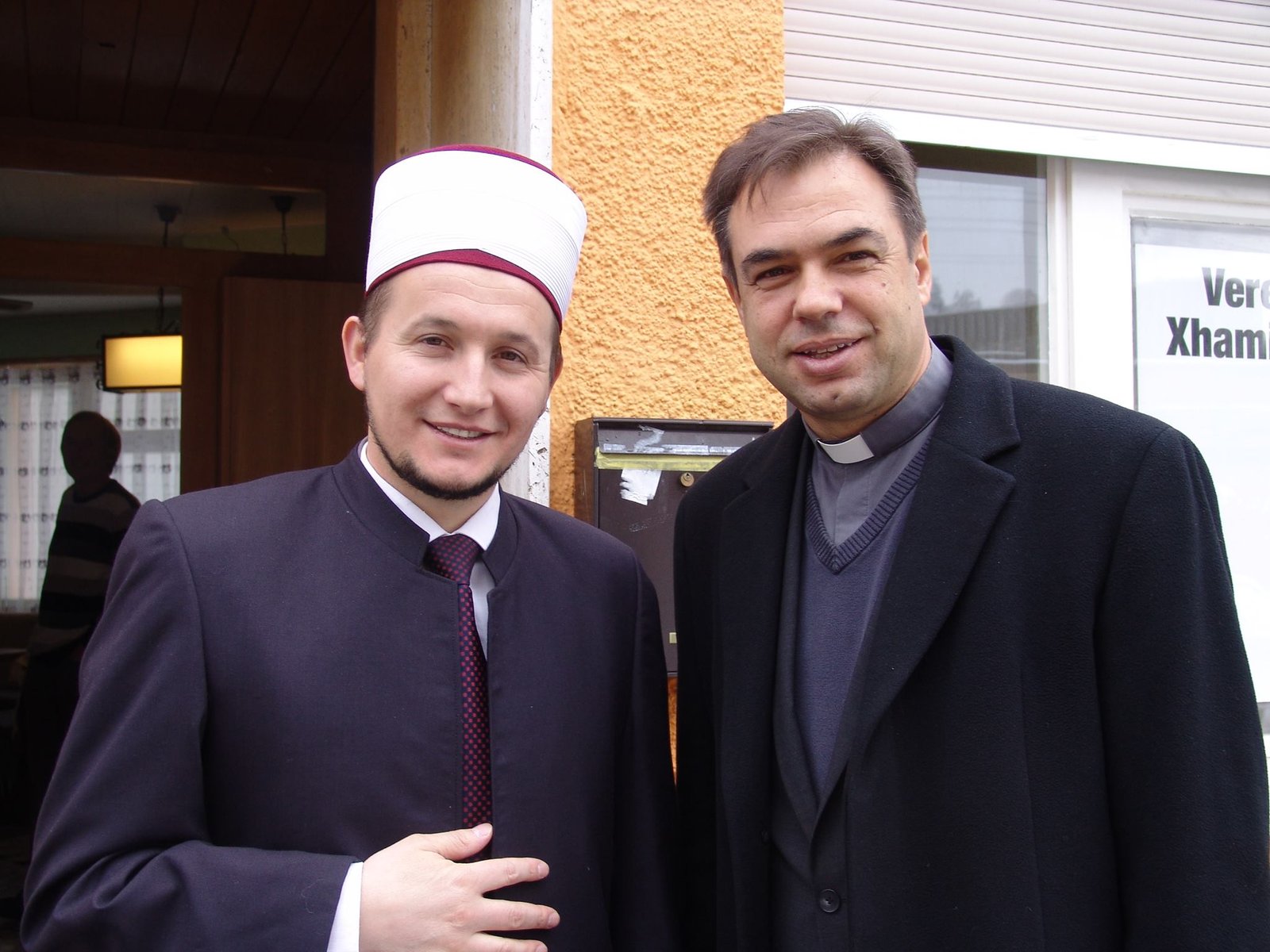
The Prophet –peace be upon him – was actively involved in the society of his time, even though his society was not a Muslim, and he was proud of that involvement as a Prophet, despite the fact that causes that he got involved in were not purely religious causes. During my service as Imam in Switzerland for more than 10 years, the practice of the Prophet –peace be upon him- clearly shows us that getting involved in public causes is a part of being a good Muslim. This is the biggest problem that Muslims have as a minority in Switzerland, Germany, Austria and elsewhere. We think that we should get involved only when we have purely Islamic causes. Why we don’t get involved with racism, with Islamophobia, with oppression, with poverty, with child abuse, etc. The Prophet –peace be upon him- was supporting the justice in his society and that justice has nothing to do with Islam or non-Islam, with Muslim or non-Muslim. We as Muslims, still don’t seem to have a connection with society around us.
English
KOSOVO AND BRUNEI DARUSSALAM
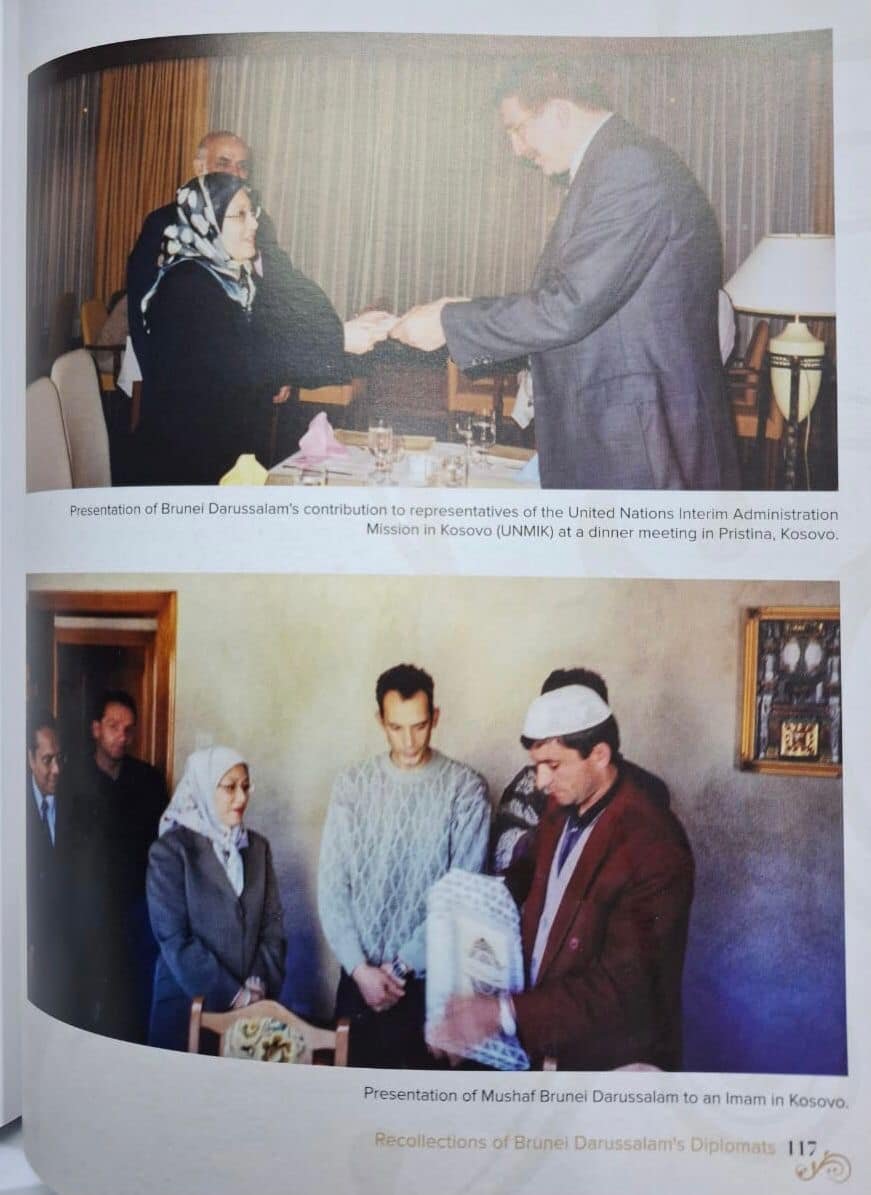
PRESENTATION OF BRUNEI DARUSSALAM’S CONTRIBUTION TO REPRESENTATIVES OF THE UNITED NATIONS INTERIM ADMINISTRATION MISSION IN KOSOVO (UNMIK) AT A DINNER MEETING IN PRISHTINA, KOSOVO
In early 2000, I travelled to Kosovo to determine what assistance was needed after the war in what was previously Yugoslavia, and to identify suitable recipients for Brunei’s Tabung Insaniah In Kosovo.
To me, this was an important endeavour as the fund had been donated by the people of Brunei Darussalam to alleviate the suffering of the Albanians in Kosovo. So, together with two Embassy officials, I travelled to Kosovo, In May that year.
It was an intense but memorable trip. The security situation was still unstable in Pristina, Djakovica and Prizren. Remnants of the war were everywhere; buildings were destroyed or badly damaged. Nothing seemed to have been spared ordinary housing, schools and mosques were all affected.
Djakovica was one of the areas particularly hit by the war. The proportion of missing people was the highest here. Prishtina fortunately suffered less as it was used as a base for the Serbian forces.
The country was under the administration of the United Nations Interim Administration in Kosovo (UNMIK) with the Kosovo Force (KFOR), the peacekeeping body that was trying to restore peace and stability.
On arrival, the airport was full of uniformed men of different nationalities carrying weapons and manning the immigration counters.
There were many security posts along the roads. For our own safety, we had to return to the hotel before dark whenever we ventured outside Pristina. The Office of the United Nations High Commissioner for Refugees (UNHCR) assisted with our programme and provided us with transport.
In Pristina, we met officials from UNMIK and UNHCR Including Jock Covey, the Principal Deputy Special Representative of the Secretary General and members of the Muslim population including Dr Rexhep Boja, Kosovo’s Grand Mufti and President of the Muslim Community.
They were thankful for Brunei’s support of the peace efforts and reconstruction programme. We also managed to visit mosques in Djakovica and Prizren.
We returned to Pristina the following year to present contributions to UNMIK for the building of a primary school and to provide accommodation for a university in Mitrovica.
UNHCR received funds to repair a mosque in Prizren, and for a school to resume some of its extra- curricular activities. In addition, I handed over Mushaf Brunel Darussalam to two mosques.
Back in Paris, the embassy made arrangements for three students from Kosove to study in Brunei. Since then, a few more students have received scholarships to our higher education institutions. I am thrilled that one of them has graduated from the University Islam Sultan Sharif All (UNISSA) with a Doctor of Philosophy (PhD).
I was pleased to reconnect in Brunei Darussalam with one of the students who became an Imam in a mosque that served the Albanian community in Switzerland, and he is now back in Pristina, Kosovo. It was very gratifying to be able to facilitate Brunel’s practical support for the rebuilding of Kosovo.
Recollections of Brunei Darussalam’s Diplomats (Page 117)
116 The Journey from Subok
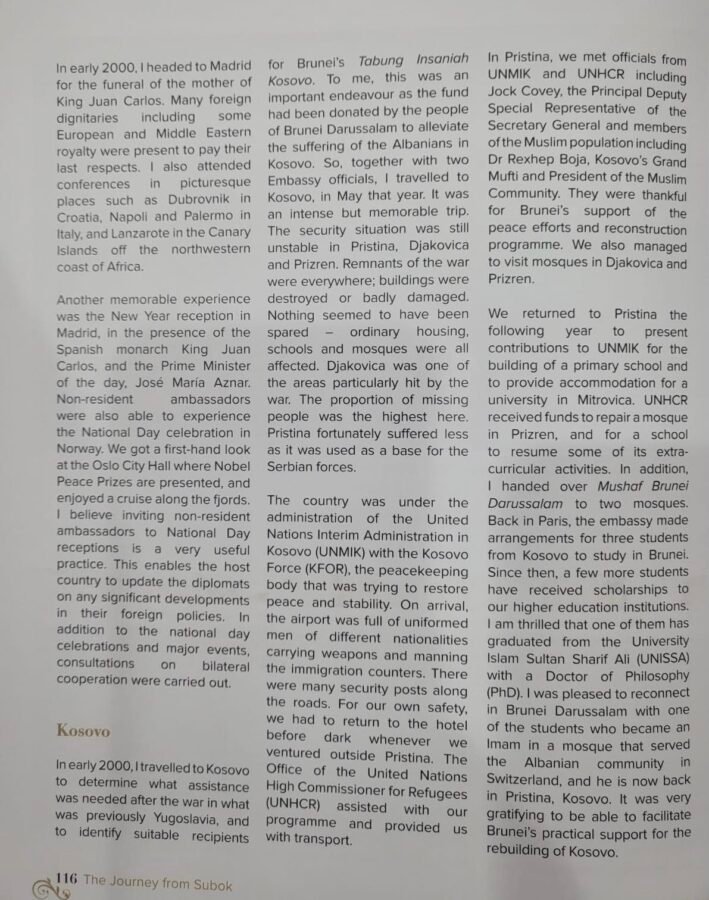
-

 Shqip2 years ago
Shqip2 years agoVizitë në Xhaminë “Khuder- El-Khodr” Moschee مسجد الخضر
-
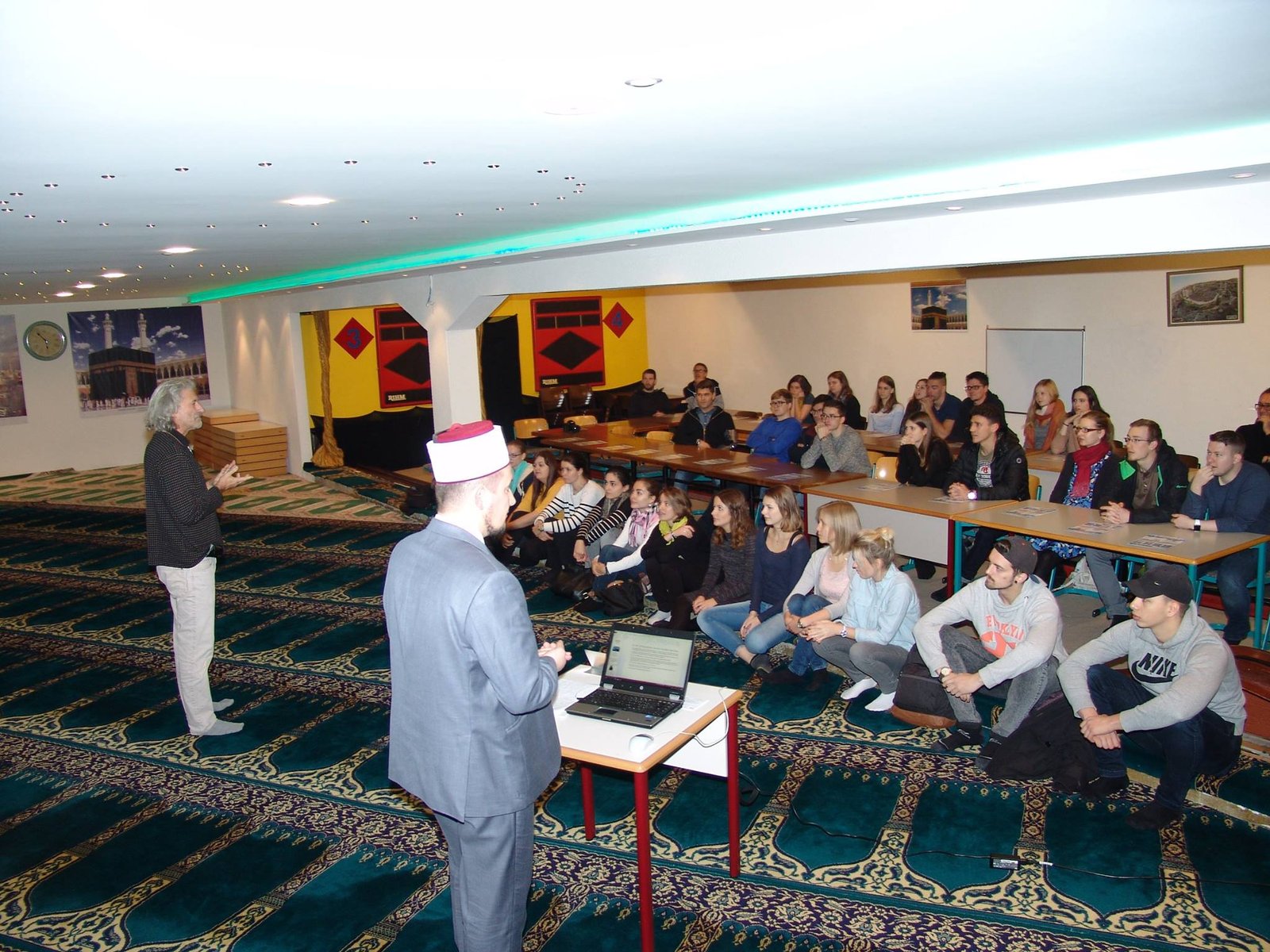
 Deutsch2 years ago
Deutsch2 years agoPRÄSENTATION ÜBER DIE MOSCHEE UND DEN ISLAM FÜR DIE STUDIERENDEN DER PÄDAGOGISCHEN HOCHSCHULE ST.GALLEN- 25.11.2016
-
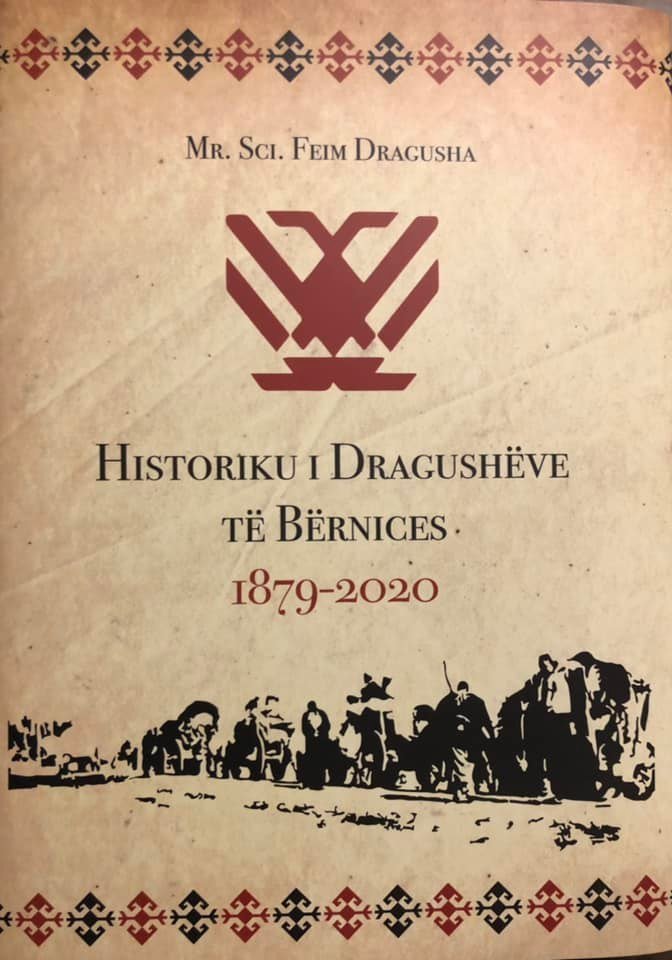
 English2 years ago
English2 years agoHistoriku i Dragushëve të Bërnices
-
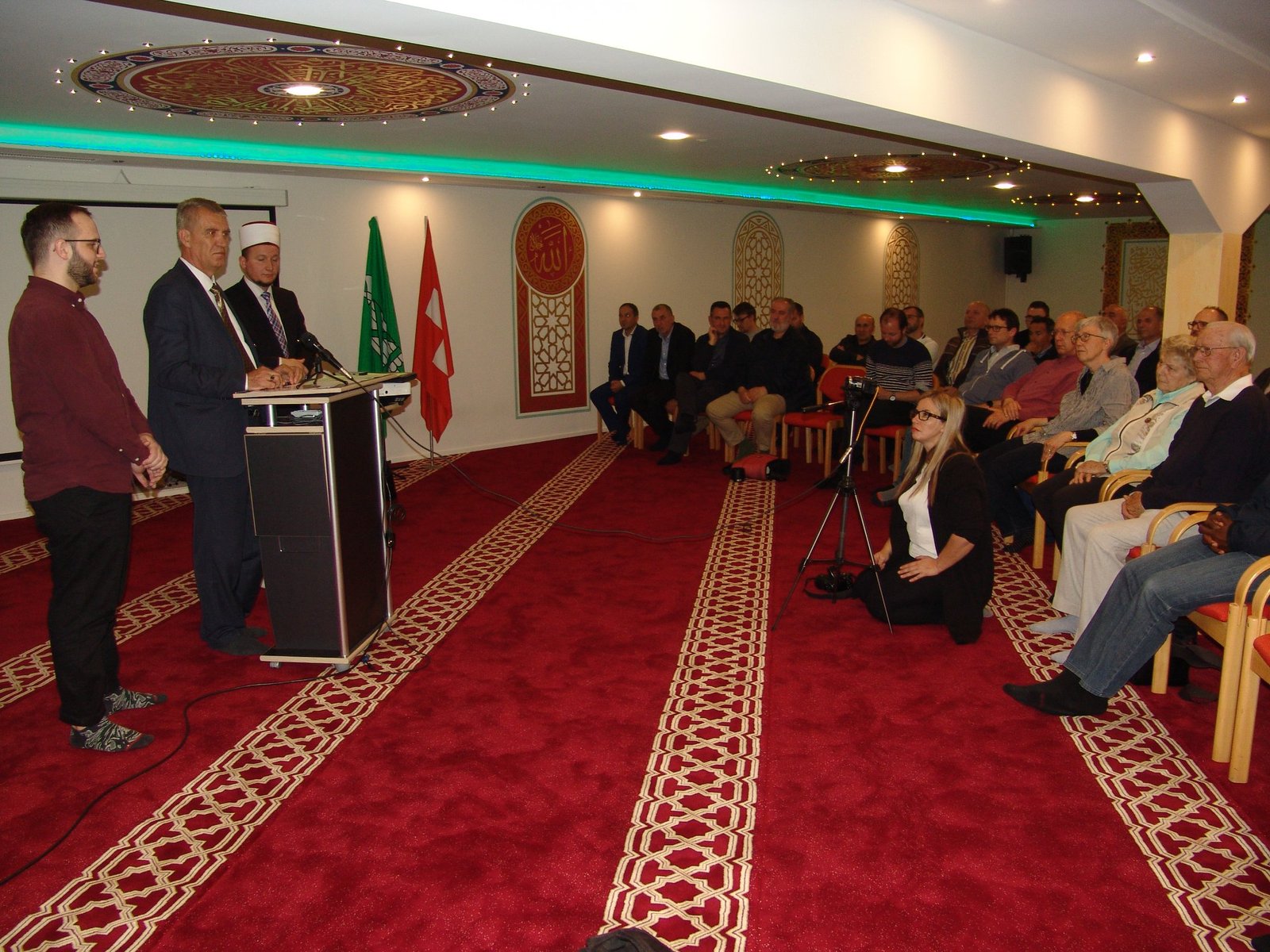
 Deutsch2 years ago
Deutsch2 years agoDER VORTRAG DES IMAMS ZUM ABENDLICHEN FASTENBRECHEN -17. Mai 2019
-
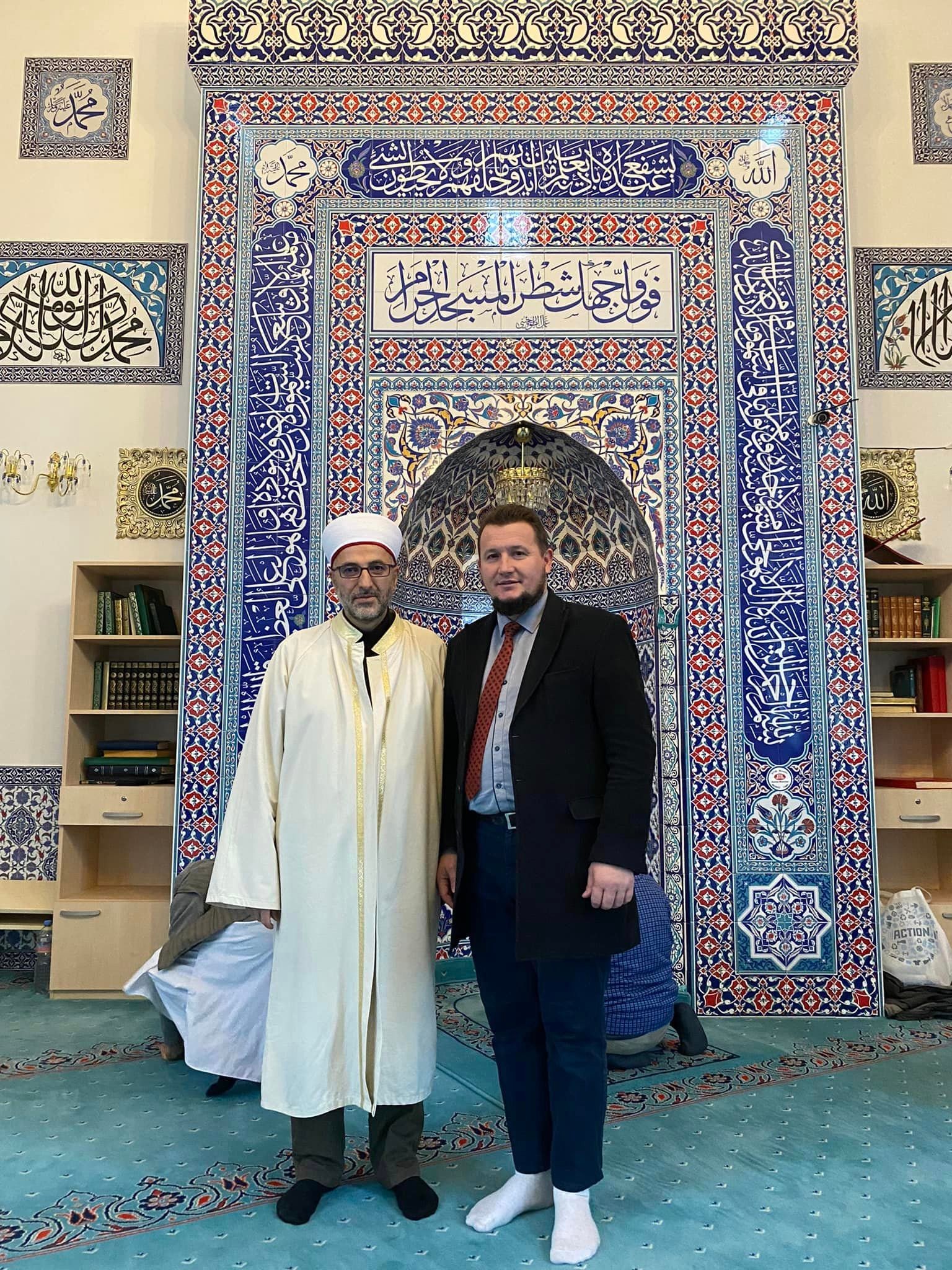
 English2 years ago
English2 years agoPERFORMING MY FRIDAY PRAYERS AT THE TURKISH MOSQUE IN THE CITY OF MÜNSTER-GERMANY
-
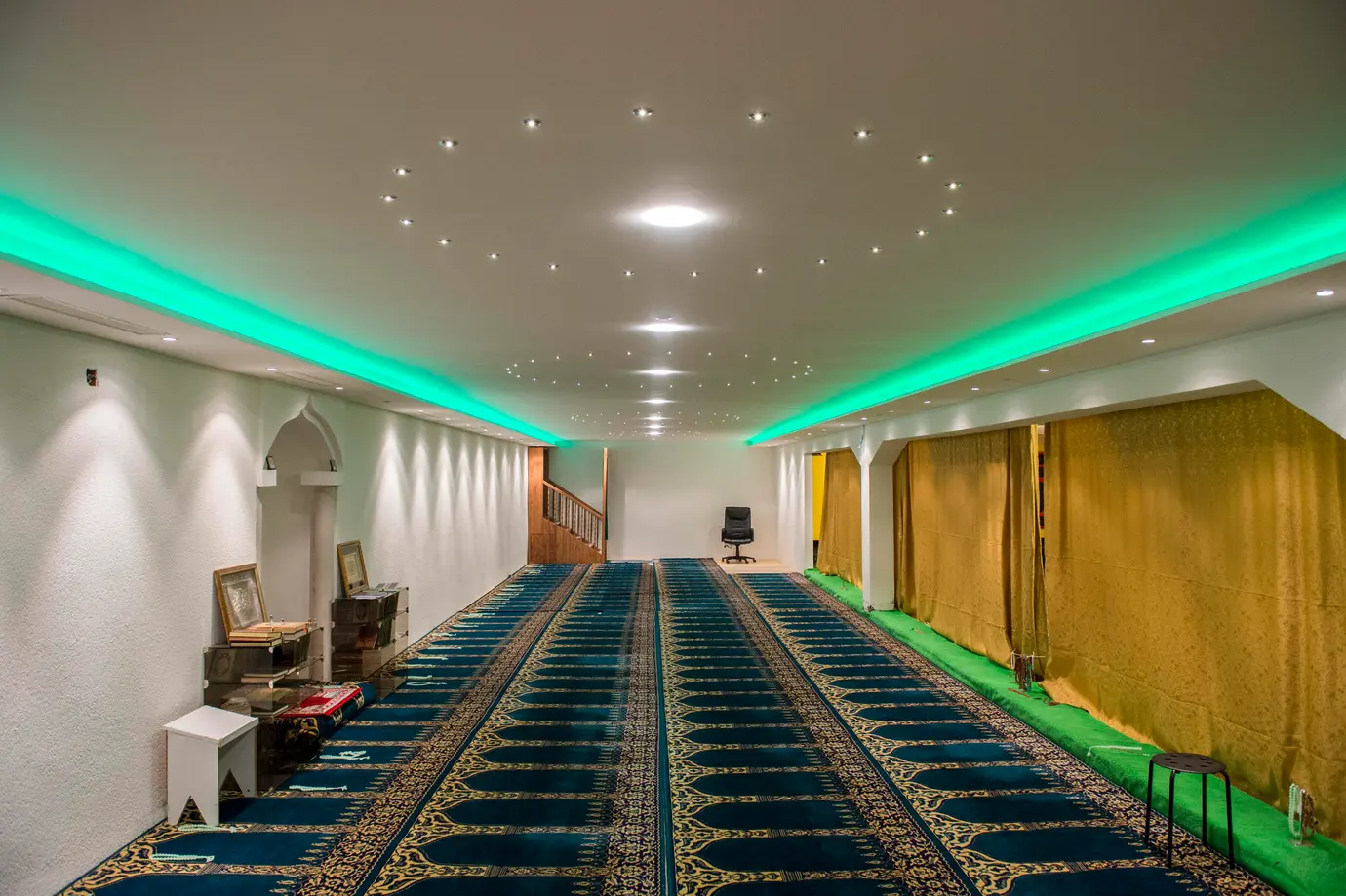
 Deutsch2 years ago
Deutsch2 years agoSTATT GEKEGELT WIRD GEBETET ST.GALLEN 26.11.2013
-
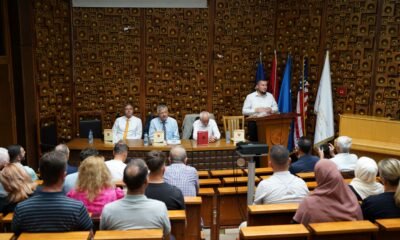
 Shqip2 years ago
Shqip2 years agoPromovimi i librit “Historiku i Dragushëve të Bërnices 1879-2020”
-
Deutsch2 years ago
ISLAMOPHOBIE IN DER SCHWEIZ